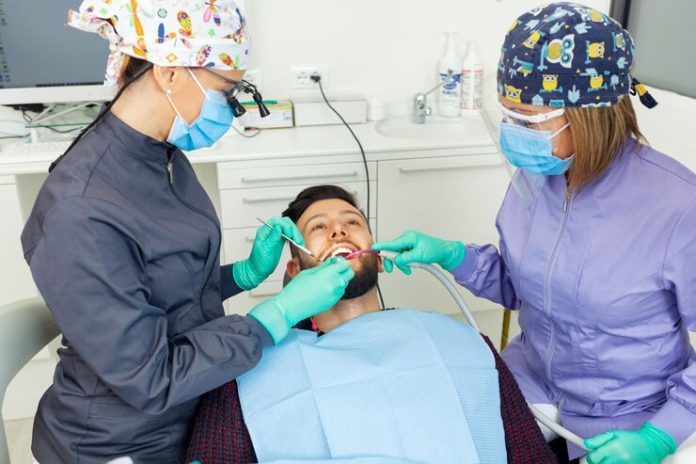Dental emergencies can occur at any time, often causing significant pain and discomfort. Knowing how to respond promptly and appropriately to such situations can make a crucial difference in preserving your oral health. Emergency dental work Crestview FL encompasses immediate treatments required to address acute dental issues, alleviate pain, and prevent further complications. This guide provides an overview of common dental emergencies, the procedures involved, and the steps to take in case of a dental crisis.
Common Dental Emergencies
- Toothaches: Severe tooth pain can be caused by various issues, including cavities, infections, or gum disease. Persistent toothaches often require prompt evaluation to determine the underlying cause and provide relief.
- Chipped or Broken Teeth: Accidents or injuries can result in chipped, cracked, or broken teeth. Immediate care is essential to prevent further damage and restore the tooth’s function and appearance.
- Knocked-Out Teeth: A knocked-out tooth is one of the most urgent dental emergencies. Quick action can sometimes save the tooth if it is handled correctly and re-implanted within a short time frame.
- Lost Fillings or Crowns: Losing a filling or crown can expose the tooth to damage and increase sensitivity. Prompt dental care is necessary to restore the tooth and prevent complications.
- Abscesses: Dental abscesses are infections that occur at the root of a tooth or in the gums. They can cause severe pain, swelling, and fever, and require urgent treatment to prevent the infection from spreading.
- Soft Tissue Injuries: Injuries to the lips, gums, or tongue can result in significant bleeding and require immediate attention to control bleeding and assess the damage.
Emergency Dental Procedures
When a dental emergency arises, a dentist will perform various procedures to address the issue and provide relief. Here are some common emergency dental treatments:
- Pain Management: Initial care often involves managing pain and discomfort. Dentists may prescribe pain relievers or use local anesthesia to numb the affected area.
- Temporary Restorations: For lost fillings or crowns, temporary restorations can be applied to protect the tooth until a permanent solution is available.
- Root Canal Therapy: If an infection or severe decay affects the tooth’s pulp, a root canal may be necessary to remove the infected tissue, clean the root canals, and seal the tooth.
- Tooth Re-Implantation: For knocked-out teeth, the dentist will clean the tooth, if possible, and attempt to re-implant it. If re-implantation is not feasible, options such as dental implants or bridges may be discussed.
- Dental Bonding: Chipped or broken teeth can often be repaired with dental bonding, which involves applying a tooth-colored resin to restore the tooth’s shape and function.
- Extractions: In cases where a tooth is severely damaged or infected and cannot be saved, an extraction may be necessary to prevent further issues.
Steps to Take in a Dental Emergency
Knowing how to respond in a dental emergency can help mitigate damage and ensure timely treatment. Here are some steps to follow:
- Stay Calm: Keeping calm and composed is crucial in any emergency. This will help you think clearly and take appropriate action.
- Control Bleeding: For bleeding injuries, use a clean cloth or gauze to apply gentle pressure to the affected area. If bleeding persists, seek immediate medical attention.
- Preserve Knocked-Out Teeth: If a tooth is knocked out, handle it by the crown (avoid touching the root). Rinse it gently with water, if dirty, and try to place it back in its socket. If that’s not possible, store it in a container of milk or saline solution and see a dentist immediately.
- Manage Pain and Swelling: Use over-the-counter pain relievers and cold compresses to reduce pain and swelling. Avoid placing aspirin directly on the gums, as it can cause tissue damage.
- Seek Immediate Dental Care: Contact your dentist as soon as possible. Many dental practices have emergency services or can provide guidance on where to go for urgent care.
Preventing Dental Emergencies
While not all dental emergencies can be prevented, certain measures can reduce the risk:
- Maintain Good Oral Hygiene: Regular brushing, flossing, and dental check-ups can help prevent cavities, gum disease, and other issues that could lead to emergencies.
- Wear Protective Gear: When participating in sports or activities that risk dental injury, wear mouthguards or other protective gear.
- Avoid Hard Foods: Be cautious with hard or sticky foods that can crack or break teeth.
- Address Dental Issues Promptly: Don’t ignore dental problems. Addressing issues early can prevent them from becoming emergencies.
Conclusion
Emergency dental work Crestview FL is essential for addressing acute dental issues, alleviating pain, and preventing further complications. Understanding common dental emergencies and knowing how to respond can make a significant difference in preserving your oral health. Regular dental care and preventive measures can help reduce the risk of emergencies, ensuring a healthy and confident smile. If you experience a dental emergency, seeking prompt professional care is the best course of action to protect your oral health.








